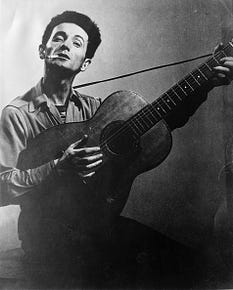|
 |
“Carrying Water to the Field” by Joyce Sutphen.
ORIGINAL TEXT AND AUDIO - 2017
It was on this day in 1789 that an angry French mob stormed the Bastille prison in Paris, an event that launched the French Revolution. The Bastille was a medieval fortress, built in the 14th century, with eight towers, each 80 feet tall. It was used as a prison, and it had a reputation as a place where political prisoners and enemies of the royal family would rot away in miserable dungeons without a proper trial. By 1789, under the rein of Louis XVI, the Bastille didn't have many prisoners, and the conditions were relatively comfortable — some wealthy prisoners even brought their own servants. Nonetheless, regular people considered the Bastille a symbol of royal oppression.
In June, the National Assembly had formed, a political body representing the common people of France. Rumors flew that King Louis XVI was trying to overthrow the National Assembly. At the same time, Parisians were starving, and the nation was on the brink of economic collapse. A few days before the storming of the Bastille, King Louis XVI abruptly dismissed his Minister of Finance, a man who had wide popular support. Angry citizens took to the streets — there was widespread looting, with food and weapons stolen. They gathered thousands of guns but needed gunpowder, and the Bastille was known to contain a large store of ammunition. By midmorning, thousands of people had gathered outside the Bastille, demanding gunpowder and the release of prisoners. They soon grew tired of negotiating and attacked. The fighting lasted several hours. Almost 100 attackers were killed and just one guard. But the mob was successful, and flooded into the prison. There turned out to be only seven prisoners to liberate: four forgers, two lunatics, and an aristocrat accused of incest. The mob killed the governor of the Bastille and paraded around the city with his head on a pike.
When King Louis XVI returned that evening from a day of hunting, one of his noblemen recounted the day's events at the Bastille. Louis is said to have asked, "So this is a revolt?" to which his duke replied: "No, Sire, this is a revolution!"
It's the birthday of playwright Arthur Laurents, born in Brooklyn (1917). He said: "I always wanted to write musicals. When I was a kid, really a kid — seven or eight — I lived in Brooklyn and there was a stock company and my cousin and I would go Saturday afternoons. I remember two productions. One was No, No, Nanette. I still remember them twirling the parasols, thinking, 'Oh, this is wonderful!' The other one was Rain by Somerset Maugham and they had real rain!"
He went on to write West Side Story (1957), Gypsy (1959), and many more musicals and films, as well as three memoirs: Original Story By (2000), Mainly on Directing (2009), and The Rest of the Story (2012).
It's the birthday of the man who wrote the first big cowboy novel, Owen Wister, born in Germantown, Pennsylvania (1860). He went to Harvard, studied music in Paris, and became a lawyer in Philadelphia. He became ill and needed to rest for the summer, and went to Wyoming and became fascinated by the Old West. He used that fascination to write The Virginian, which made the cowboy into an American literary hero and set the standard for all Western novels to come. It also made famous the line, "When you call me that, smile."
It's the birthday of playwright and novelist Irving Stone, born in San Francisco, California (1903). As a young man, he visited Paris and stumbled upon an exhibition of the work of Vincent van Gogh. It inspired him to write Lust for Life (1934), a novel about the life of Van Gogh. He then wrote a number of biographical novels about historical figures, like Sigmund Freud and Charles Darwin. His most famous novel, The Agony and the Ecstasy (1961), tells the story of the life of the painter Michelangelo.
Today is the birthday of Woodrow Wilson — aka "Woody" — Guthrie born in Okemah, Oklahoma (1912). Woody Guthrie never finished high school, but he spent his spare time reading books at the local public library. He took occasional jobs as a sign painter and started playing music on a guitar he found in the street. During the Dust Bowl in the mid-1930s, Guthrie followed workers who were moving to California. They taught him traditional folk and blues songs, and Guthrie went on to write thousands of his own, including "This Train Is Bound for Glory." In 1940, he wrote the folk classic "This Land Is Your Land" because he was growing sick of Irving Berlin's "God Bless America."
Woody Guthrie once said: "I hate a song that makes you think that you're not any good. [...] Songs that run you down or songs that poke fun at you on account of your bad luck or your hard traveling. I am out to fight those kinds of songs to my very last breath of air and my last drop of blood.
Be well, do good work, and keep in touch.®
If you like these newsletters, you can support this effort by:
*Clicking the Subscribe button (though this is free, you can make a paid contribution)
Stop by our Store and select what works for you - CLICK HERE
Send a check to: Prairie Home Productions, P.O. Box 2090, Minneapolis, MN
You’re a free subscriber to The Writer's Almanac with Garrison Keillor. Your financial support is used to maintain these newsletters, websites, and archive. Support can be made through our garrisonkeillor.com store, by check to Prairie Home Productions P.O. Box 2090, Minneapolis, MN 55402, or by clicking the SUBSCRIBE button. This financial support is not tax deductible.

